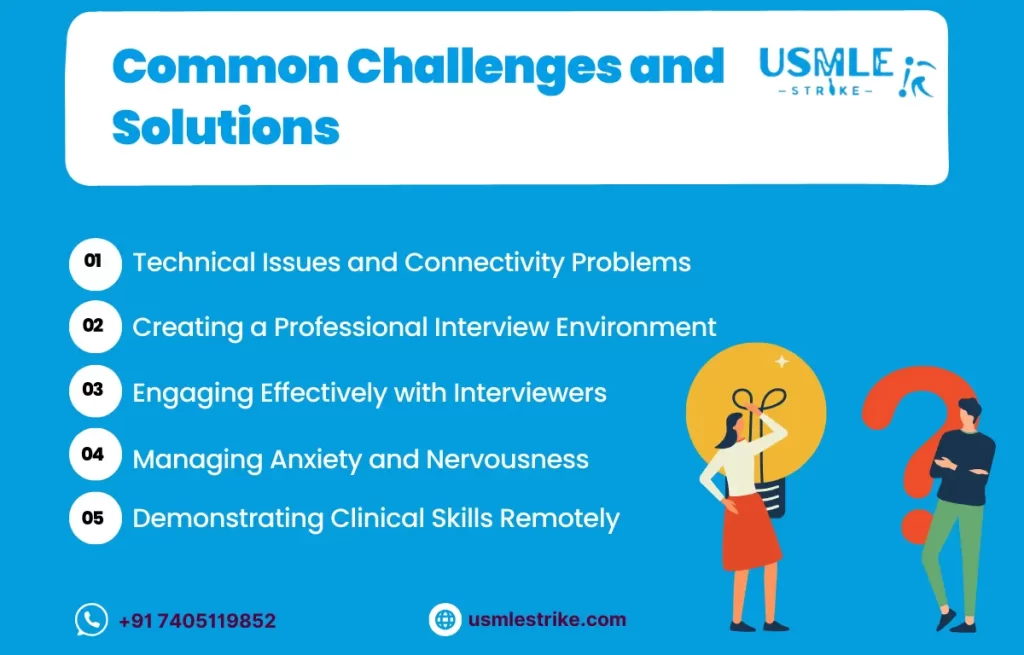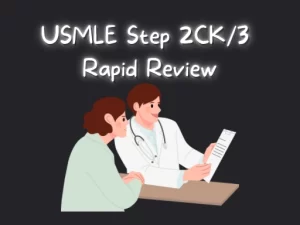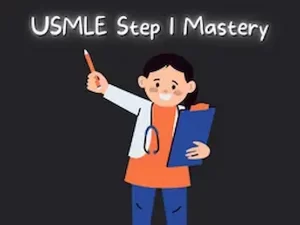Virtual Interviews for the USMLE have become an essential part of the residency application process due to recent global changes. As more programs shift to online formats, candidates must adapt to this unique setup. The convenience of interviewing from home can reduce some traditional stressors, but success requires a new set of skills and preparation. This ultimate guide for virtual residency interviews covers everything from creating an ideal setup to mastering Virtual Interview tips and tricks for top performance. With the right approach, you can confidently navigate this new interview landscape and make a strong impression on residency programs.
Creating the Optimal Setup for a Residency Virtual Interview
When preparing for virtual interviews for the USMLE, setting up a professional and distraction-free environment is key. Here are some tips to help you create the ideal setup:
- Choose the Right Location: Find a quiet space where you won’t be interrupted. Make sure it’s well-lit, ideally with natural light. A clean, uncluttered background helps you look professional.
- Test Your Technology: Before your interview, test your computer, camera, and microphone. Ensure that your internet connection is strong. Consider using a wired connection for more stability.
- Dress Professionally: Wear professional attire, just as you would for an in-person interview. This not only makes a good impression but also helps you feel more confident.
- Use Headphones: Using headphones can improve sound quality and help reduce background noise. Make sure they are comfortable and tested beforehand.
- Practice with the Setup: Do a trial run to familiarize yourself with the setup. This can help you identify any potential issues with your technology or environment.
By following these tips, you can ensure that your virtual interview setup is optimal for making a strong impression.
Practice Round for Residency Virtual Interviews
Practice is essential for succeeding in virtual interviews for the USMLE. Here’s how you can prepare effectively:
- Mock Interviews: Conduct mock interviews with friends or mentors. This will help you get comfortable speaking on camera and responding to questions.
- Record Yourself: Record your practice sessions to review later. Pay attention to your body language, tone, and clarity of speech.
- Receive Feedback: Ask for constructive feedback from your practice partners. They can point out areas for improvement and help you refine your responses.
- Focus on Common Questions: Prepare answers for frequently asked questions in residency interviews. Common topics include your strengths, weaknesses, and motivations for pursuing a specific specialty.
- Simulate Real Conditions: Try to recreate the actual interview conditions as closely as possible. Dress up, use your interview setup, and limit distractions during your practice rounds.
Taking the time to practice thoroughly will boost your confidence and improve your performance during the actual virtual interviews for the USMLE.
Read also: IMG Friendly Residency Programs
Virtual Interviewing Basics
Understanding the basics of virtual interviews for the USMLE is crucial for success. Here are the key elements to keep in mind:
- Familiarize Yourself with Technology: Different programs may use various video conferencing platforms. Get comfortable with common tools like Zoom, Microsoft Teams, or Google Meet.
- Know Your Interviewers: Research the faculty members you’ll be meeting. Familiarizing yourself with their backgrounds can help you engage in meaningful conversations.
- Be Mindful of Time Zones: If your interview is scheduled with someone in a different time zone, double-check the time to avoid confusion.
- Body Language Matters: Even though the interview is virtual, your body language still plays a significant role. Maintain eye contact by looking at the camera, sit up straight, and avoid crossing your arms.
- Stay Engaged: Show enthusiasm and interest during the conversation. Nod and respond appropriately to demonstrate that you are actively listening.
By mastering these basics, you can navigate the virtual interview landscape more effectively and confidently.

Typical Interview Format
Understanding the typical format of virtual interviews for the USMLE can help you prepare more effectively. Here’s what you can generally expect:
- Introduction: Most interviews begin with a brief introduction. You may be asked to introduce yourself and provide a summary of your background.
- Behavioral Questions: Interviewers often ask behavioral questions to gauge how you handle different situations. Use the STAR method (Situation, Task, Action, Result) to structure your responses.
- Clinical Scenarios: Be prepared to discuss clinical cases or scenarios relevant to your specialty. Interviewers may assess your clinical reasoning and decision-making skills.
- Questions for Interviewers: At the end of the interview, you’ll likely have a chance to ask your own questions. Prepare thoughtful questions that reflect your interest in the program and specialty.
- Wrap-Up: The interview usually concludes with the interviewers thanking you for your time. Make sure to express your appreciation and interest in the program.
By understanding this format, you can tailor your preparation and responses accordingly during your virtual interviews for the USMLE.
Advantages and Disadvantages
Virtual interviews for the USMLE come with both pros and cons. Here’s a look at some of them:
Advantages
- Accessibility: Candidates from various locations can easily participate without travel costs or arrangements.
- Comfort: Being in a familiar environment may help reduce anxiety.
- Flexibility: Scheduling can often be more convenient.
Disadvantages
- Technical Issues: Connectivity problems or software glitches can disrupt the interview.
- Limited Interaction: Building rapport may be more challenging in a virtual setting.
- Distractions: Conducting interviews from home can lead to interruptions.
Being aware of these advantages and disadvantages can help you prepare more effectively for your virtual interviews for the USMLE.
How Do I Prepare for Virtual Interviews?
Preparation for virtual interviews for the USMLE involves several steps. Here’s how you can get ready:
- Research the Program: Learn about the residency program’s mission, values, and strengths. This will help you align your answers with what they are looking for.
- Review Your Application: Be familiar with your application materials, including your CV and personal statement. You may be asked about specific experiences or achievements.
- Practice Common Questions: Prepare for common interview questions and rehearse your answers. Make sure they are clear and concise.
- Get Feedback: Seek advice from mentors or peers who have gone through the interview process. Their insights can be invaluable.
- Stay Calm and Focused: On the day of the interview, take deep breaths, and remind yourself that you are prepared. Confidence is key!
By following these preparation steps, you can approach your virtual interviews for the USMLE with confidence and poise.
Commonly Used Video Chat Platforms
Familiarity with various video chat platforms is essential for virtual interviews for the USMLE. Here are some commonly used tools:
- Zoom: A widely-used platform known for its user-friendly interface and features like breakout rooms.
- Microsoft Teams: Offers seamless integration with other Microsoft products and allows for collaboration.
- Google Meet: A straightforward platform that works well for quick meetings and is integrated with Google Workspace.
- Skype: While less common now, some programs may still use it for interviews.
- Webex: A secure platform favored by many institutions for hosting meetings.
Being comfortable with these platforms will help ensure a smooth interview experience during your virtual interviews for the USMLE.
Typical Interview Questions for Virtual Residency Interviews
Here are some common questions you may encounter during residency interviews virtual:
- Tell me about yourself.
- Keep it concise, focusing on your professional journey, major achievements, and goals.
- Why did you choose this specialty?
- Share personal experiences, interests, or specific skills that drew you to the specialty.
- Why are you interested in our program?
- Research the program’s strengths and relate them to your own interests, skills, and career goals.
- What are your greatest strengths and weaknesses?
- Mention strengths relevant to residency, such as resilience or teamwork, and frame weaknesses as areas of improvement.
- Describe a challenging situation you faced and how you handled it.
- Use specific examples from clinical rotations to highlight your problem-solving skills and adaptability.
- Where do you see yourself in five to ten years?
- Show your long-term vision and how the program aligns with your career path.
- How do you handle stress or burnout?
- Share your strategies for maintaining balance and resilience, which are crucial during residency.
By preparing for these questions, you’ll appear confident and well-prepared, which is crucial for success in virtual interviews for the USMLE.
How USMLE Strike Helps You Prepare for Virtual Interviews
USMLE Strike enhances your virtual interview preparation by offering comprehensive services tailored to residency applicants. Their “Residency Match Essentials” package includes a personal statement and CV editing, mentoring, and interview preparation, all designed to help you secure your desired residency program. Additionally, USMLE Strike provides a free video training series covering topics such as USMLE preparation timelines and study resources, which can further aid in your interview readiness. By leveraging these resources, you can approach your virtual interview with confidence and professionalism.
Conclusion
Virtual interviews for the USMLE are now a vital step in securing a residency spot. Success in this format requires a mix of preparation, practice, and strategy. By optimizing your setup, practicing responses to common questions, and understanding the advantages and disadvantages of virtual interviews, you can approach this process with confidence. With Virtual Interview tips and tricks from experienced professionals like USMLEStrike, you’ll be well-equipped to make a strong, lasting impression. Embrace this ultimate guide for virtual residency interviews to enhance your chances of matching with your desired program!
Read also: How to Rank Residency Programs





